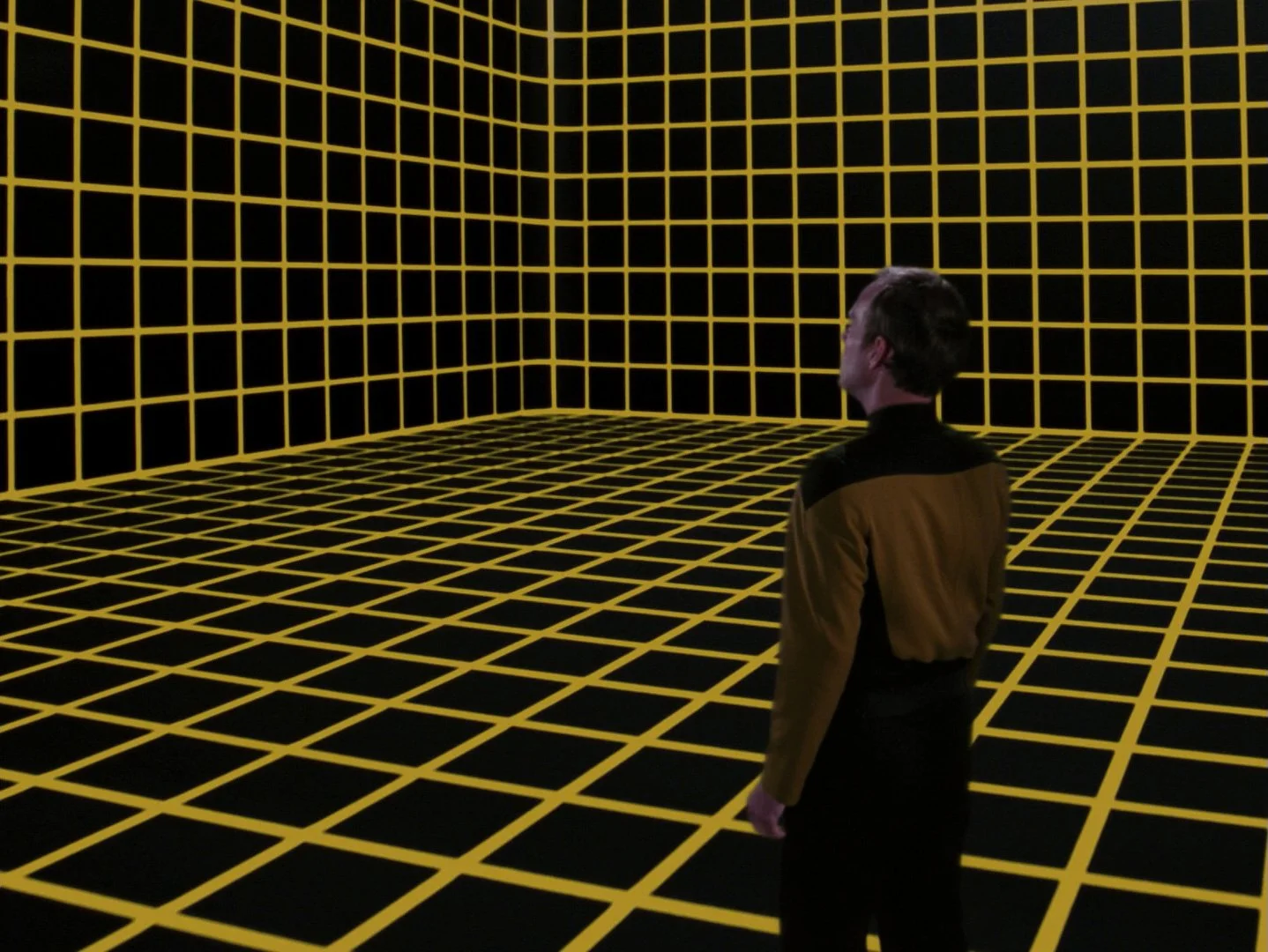"Are You Okay?" "No, But I Will Be." — Dragging Yourself Out of an Emotional Cave
In the Star Trek: Deep Space Nine episode “It’s Only a Paper Moon,” we see the character of Nog (a Ferengi ensign, played by the late Aron Eisenberg, RIP) dealing with post-traumatic stress and depression following the loss of his leg during the Dominion War.
In response to his trauma, Nog has taken it upon himself to spend his rehabilitation therapy inside the holodeck where he lives out a 1960s-era fantasy life as owner of a casino and nightclub with his holographic business partner, Las Vegas lounge singer Vic Fontaine.
Although Nog eventually emerges from the holodeck and from his escapist fantasy life, Nog is far from over his traumatic experiences by the end of the episode. Upon Nog’s emergence from the holodeck, being greeted by his friends and family, Nog’s stepmother, Leeta, asks Nog if he is okay. It’s Nog’s reply to this simple question that I want to focus on for the purpose of this post:
Leeta: Are you okay?
Nog: No, but I will be.
Most of us experience some form of trauma, depression, anxiety, or various other trials and tribulations (or trials and tribble-ations, so to speak) in the course of our lives. We do our best to plow forward through it all, putting on a smile for others’ benefit when a smile is called for, perhaps afraid to let others see us as we truly are, with all of our pain and struggles and weakness, and sometimes our despair, on full display. We ourselves know that we’re not okay, but we’re afraid to let others see it, whether for fear of how others might see us or whether for thee sake of appearing stronger to ourselves than we really are.
Sometimes we ourselves don’t even realize that we’re not okay. We find ourselves anxiety-ridden, melancholy, depressed, short-tempered, lonely, or self-isolated, and we can’t even explain why because we haven’t yet been able to accept the simple truth of the fist part of Nog’s statement, that we are not okay. There is so much pressure—both external societal pressure and internal psychological pressure—to seem and to be okay, even in the face of whatever internal or external struggles we are facing. But the recognition that you are not okay, whether from trauma or by circumstance, is the first step toward healing.
The second part of Nog’s statement, “I will be,” is equally important in reclaiming your mental health following any sort of trauma or emotional struggle. Once you’ve recognized that you’re not okay, even if you’ve realized that you need to get some help—whether psychological counseling or a good, old-fashioned talk with a friend—you will be in a position to recognize that you will be okay again at some point.
Although emotional turmoil sometimes feels as though it will last forever, it seldom does. For most of us, the morning light once again returns even after the darkest nights—either of its own accord or because of someone help in dragging us out of the emotional cave in which we find ourselves, like the philosopher in Plato’s Allegory of the Cave (Republic, Book VII) breaking free of his chains and helping his fellow prisoners to escape the shadows and the darkness and to join him in the sunlight outside the cave (sometimes after an emotionally exhausting climb as we crawl our way out!).
I myself am prone to needing a reminder of the simple, two-pronged truth of Nog’s reply. I have always been rather susceptible to bouts of melancholiness and reverie, so much so that it can begin to seem normal instead of a deviation from my usual jovial, happy, optimistic, romantic, glass-half-full self. In such times it can be a challenge for me to admit—and to accept—that I’m not doing okay, just as it took Nog an hour-long episode of Deep Space Nine to finally admit to himself that he was not okay after his traumatic experience.
Similarly, when I do find myself in the “depths of despair,” as another favorite fictional character of mine, Anne Shirley from Anne of Green Gables, might have said, it can sometimes be a challenge to realize that the pain of the present moment is only temporary, that I will once again be and feel happy inside, and that the present emotional turmoil or the present dilemma is not the end of the world, no matter how much it may seem or feel to be in that particular moment.
I’m not sure this post counts as properly philosophical, even despite the reference to Plato’s Allegory of the Cave. But it’s the truth of the present moment for me, as this morning I once again find myself not okay and reminding myself, as a wise young Ferengi ensign once said, “. . . but I will be.”









